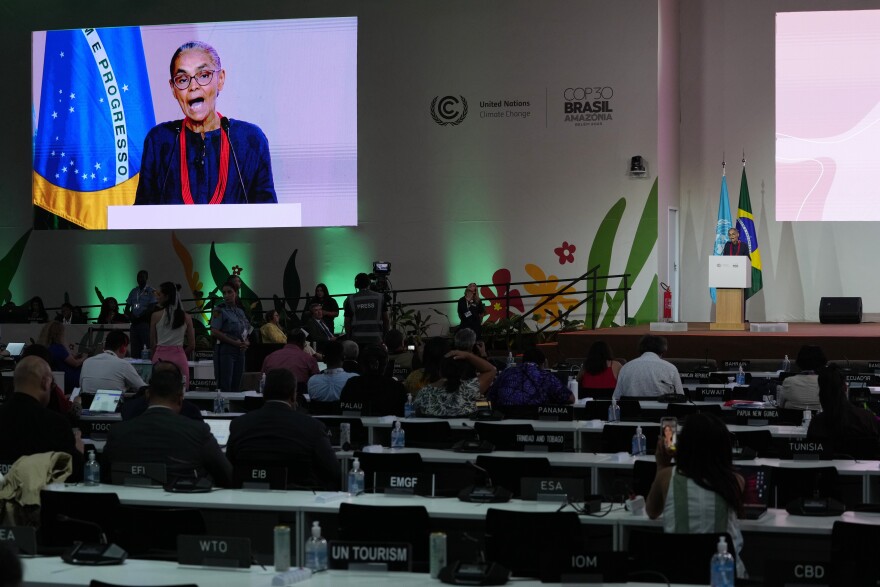This month, world leaders, scientists, advocates and lobbyists are gathering in Brazil for the COP30 climate conference.
“COP” stands for “Conference of the Parties,” referring to the roughly 200 countries who originally signed on to the UN climate agreement in 1992.
This COP takes place ten years after the Paris Climate Agreement, when countries pledged to take steps to limit global warming to “well below” 2 degrees Celsius globally, and to aim for less than 1.5 degrees.
Researchers now say it’s inevitable that we will surpass the 1.5-degree goal. With aggressive action, it’s still possible to limit warming to 2 degrees, but right now, based on the “lackluster” commitments submitted by member nations ahead of the meeting, it's more likely that warming will reach somewhere between 2.3 and 2.5 degrees.
The Trump administration declined to send an official delegation this year. But there are representatives from states, including California Governor Gavin Newsom, who has been striking deals for his state with other countries. And several delegations from Maine are in Brazil this year, too.
Anthony Moffa, a professor at the University of Maine Lew School who studies environmental and energy policy and legal tools for combatting climate change, will be taking a group of first-year law students to Brazil. UMaine has designated “observer status” at COP, meaning they can attend and share research insights and take meetings, but can’t advocate for specific outcomes.
Moffa said the fact that a breach of the Paris Climate Agreement is all but assured hasn't slowed down negotiations - quite the opposite.
“We are now in the space where whatever we can do is going to save lives," he said.
Third year UMaine Law Student Adam Fortier Brown spoke to Maine Public from the summit. He said so far the talks have revealed how similar the challenges are that communities around the globe are facing.
"Like in Maine, we talk about warming waters and like changes to our fisheries and increasingly severe storms getting our coast, droughts that have been persistent in our state, and I've heard almost the exact same story this week from countries all over the world."
He said, from what he's observed, progress toward new climate agreements has been a "messy" process.
"It's been really political, and like, you can feel those tensions very clearly in the negotiations, like you see developing nations and the West like breaking up into groups actively in negotiations," he said.
Still, Brown, who used to attend the talks in his previous career at Deloitte before going to UMaine for law school, said there's still an air of hope at the talks, too.
"For the first time, the conversation has really shifted, and we're past this big era of aspirational climate pledges," he said. "Now it's all about implementation: how do we do this?"



